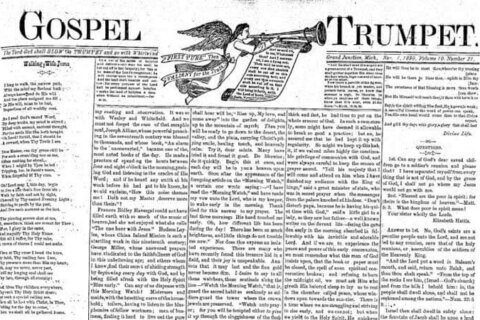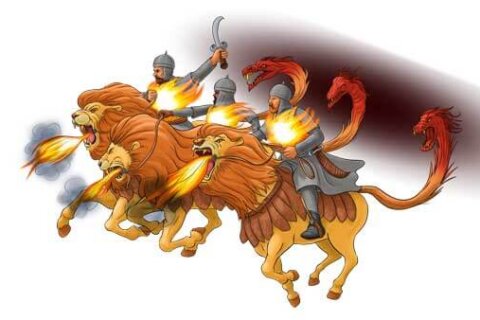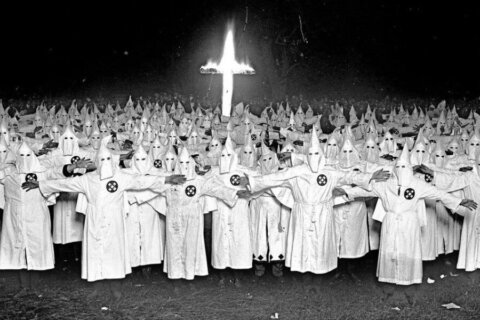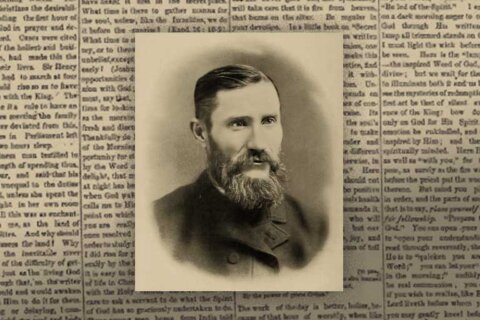The Protestant is in a predicament; he is a contradiction incarnate. He is forever stuck in a mud hole which he hates, yet loves and is loathe to escape.
He wants a car that drives. He declares he longs for it with all his soul–yet, God forbid that it should have wheels. If only he could have a strong house, but to have a foundation–what a cursed thought! Heresy! What a tragic tangle in which he finds himself. There he wallows, forward and back in a show of desperate desire to escape. There is someone calling to him with a connection that would bring a speedy deliverance, yet he seems equally desperate to avoid the call. Perhaps we must conclude that he loves his mud hole and savours the appearance of seeking deliverance while hating the thought of actually finding it.
He wrings his hands at the condition of the church today. So much division. So much worldliness. What is to be done to save our youth? The world seems to be overrunning the church in a stampede of false doctrines. How will this end? Will Christ find faith when He comes? Did Christ not say the gates of hell shall not prevail? Where is the church of Acts, he repines? Oh, for the glorious days of Peter and Paul! Pray for revival!
Meanwhile, in the midst of all his troubles, at least he can rejoice that he has been delivered from man rule. He is ever so grateful that there is no man ruling over him; no man between him and God. He shudders at the thought of such heresy. God save us from the antichrist of which the Apostle John warned. God save us from men who claim the power to interpret the will of God for the world today, and he returns to reading the news. He’s not sure how this is all going to work out, but at least he is thankful that Elon Musk has taken over Twitter, and surely hopes that Donald Trump or Ron DeSantis will win the next election. They may save the world. That, at least, would help to ease the pain. And there he sits and wallows. Poor Protestant.
Jesus, speaking to Peter in Matthew 16:18 declares, “And I say also unto thee, That thou art Peter, and upon this rock I will build my church; and the gates of hell shall not prevail against it.” This is a promise of a victorious church built upon this rock. Which Rock? Ephesians 2:20: “And are built upon the foundation of the apostles and prophets, Jesus Christ himself being the chief corner stone.” We find then that Jesus and Peter are inseparable in this foundation.
Jesus continues in verse 19 without a change of subject: “And I will give unto thee the keys of the kingdom of heaven: and whatsoever thou shalt bind on earth shall be bound in heaven: and whatsoever thou shalt loose on earth shall be loosed in heaven.” Here Jesus gives the keys of authority over His kingdom to Peter and gives him the full latitude of their use in the word, “whatsoever.” The pattern was irrevocably set. This was undeniably a condition for the church to triumph over the gates of hell. Jesus knew when He left this earth that the church would not triumph if the keys went with Him.
The Protestant adamantly denies the validity of this pattern beyond the first century while seeking first-century results. He professes to desire the results of Ephesians 4:12-14–the coming together in the unity of the faith, etc., while ignoring the previous order and conditions given for such results in verse 11, “And he gave some apostles.” “Oh, no,” the Protestant says, “I believe in the apostles, but just the dead ones.” Believing it is sufficient to build his house on dead apostles, he expects by some quirk of magic to attain to a living tree on a dead trunk. This is the Protestant’s dilemma. He is stuck forever playing pick up sticks from the recent storms that knocked his house down, and, methinks, he likes it so, for he
refuses to build on the rock.






Time is far spent. Protestant began to fold his hands, relaxed, CLOSED HIS EYES and fell asleep. Oh yes, he has eyes, but he sees not. And yes, he has ears, but since he has been slumbering and sleeping, he is unable to hear. He’s been carrying on churchianity and religiosity as usual; after all he no longer has to think or put forth any effort. He can do everything with his eyes closed. BUT… while Protestant was sleeping, satan entered in like a ferocious beast and launched his works that seem to have paralyzed Protestant. Protestant watches, shakes his head but turns away and continues in his usual form his lethargy created for him; no longer seeing sin as exceeding sinful. Sunday comes and Protestant flows through the usual program. The singing, the preaching a testimony or so; then goes home until the next scheduled gathering. Brother, our Lord must be grieved beyond our imagination. Nothing less than another AWAKENING, and our obedience to II Chronicles 7:14 will save this nation. We are headed for an unimaginable catastrophic disaster right here in our country. Protestant led us here “while he was sleeping.” He is now powerless, weak and fearful. Brother, there must be an AWAKENING, a returning to God, admission/ confession of our condition, REPENTANCE, prayer and supplication, taking up the armor of God and be ready to stand against the powers that has crippled us. We must go into battle. We must PRAY like never before. We must move God on His throne in sincere and earnest prayer. we’ve been the tail…… we must press on to be the head, as the Father said. Put on thy strength oh Zion. See Isaiah 52. God wants to shine in Zion once again, Psalm 50. If protestant fails to wake up, our children, grandchildren and great grandchildren will continue to be swept away in damnable confusion and despair. Pray is the only ” DAM ” that will stop the enemy and save the impending result of protestant’s failures.